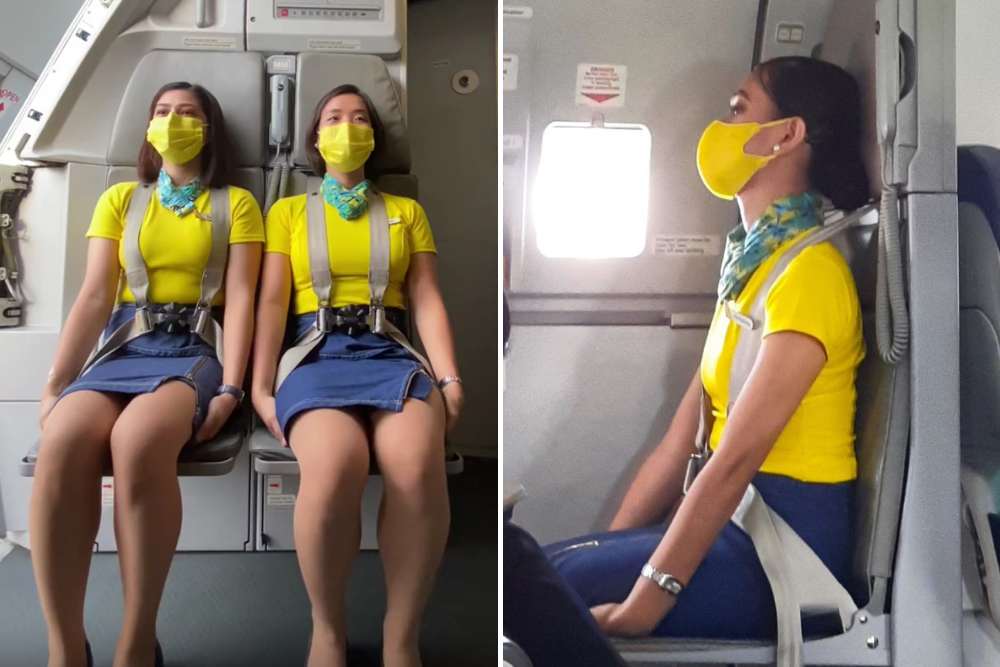Airline Bans Passengers From Bringing Popular Item On Board After Plane Was Destroyed In Horrific Fire
When preparing for a long-haul flight, most travelers pack a few essentials to ensure their comfort and convenience. Noise-canceling headphones for in-flight movies, a cozy travel pillow to catch some sleep, and a trusty power bank to keep devices charged during the trip tend to top the list.
But one airline is making headlines after a terrifying incident forced them to make a strict change to their carry-on luggage policy. South Korea’s Air Busan announced new safety measures following an incident that could have ended in disaster.

On January 28, an Air Busan plane bound for Hong Kong experienced a fire while standing on the runway, leaving passengers and crew scrambling. The blaze originated in an overhead luggage bin toward the rear of the plane. A flight attendant was quick to spot the smoke and raise the alarm, prompting an immediate evacuation of all onboard. Fortunately, there were no injuries, but the event has raised pressing concerns about what passengers bring aboard in their carry-on bags.
An investigation into the fire’s cause is currently underway, led by South Korean authorities. Although no definitive explanation has been provided yet, aviation experts point out that air-related accidents are rarely the result of a single factor. Instead, they are often triggered by a chain of failures or hazards.
A New Rule to Prevent Future Risks
Starting on February 7th, Air Busan introduced a new set of guidelines for carry-on luggage. Under these measures, cabin crew will inspect passengers’ carry-on bags at boarding gates. Bags that do not contain certain restricted items will be tagged, indicating they are safe for storage in the overhead bins. This policy will initially be tested on select trial routes before being expanded across the airline’s entire network.
Perhaps the most surprising part of this new rule? Portable power banks—arguably one of the most common travel essentials—are no longer allowed in overhead luggage compartments. Passengers will now be required to keep their power banks on their persons at all times during flights. According to the airline, this allows the crew to detect any signs of overheating, smoke, or fire immediately.
Air Busan isn’t stopping there. The airline has also committed to enhancing fire safety training for its cabin crew and increasing onboard fire containment equipment, such as thermal containment bags designed to isolate overheating devices like power banks or electronic cigarettes.
Why Are Power Banks Considered a Risk?
Power banks and other rechargeable devices often contain lithium-ion batteries, which can pose a fire hazard if not handled correctly. These batteries are common in laptops, mobile phones, tablets, and e-cigarettes. Global aviation safety standards already prohibit lithium batteries from being stored in checked luggage due to the risk of fires caused by manufacturing defects or physical damage. Unfortunately, even in carry-on luggage, these batteries can present a risk if improperly carried or stored.
According to the FAA (Federal Aviation Administration), incidents involving lithium-ion batteries onboard commercial flights are on the rise. A report from the FAA noted 57 incidents involving lithium batteries across U.S.-based airlines in 2022 alone. This has sparked a global conversation about how to best mitigate risks while maintaining passenger convenience.
Thermal containment devices, commonly used by airlines to isolate overheating electronics, have become standard onboard safety equipment. These heat-resistant containment bags seal off the overheated device to prevent flames from spreading. “Airlines and crew are well-versed in managing these incidents,” noted Jerry Lexington, an aviation safety expert. “The key is early detection, which is why keeping devices within eyesight is so critical.”
A String of Air Safety Concerns
This incident is just one of two high-profile aviation safety concerns that shook South Korea’s aviation industry in a single month. Prompted by these events, South Korea’s Deputy Minister of Land, Infrastructure and Transport, Baek Won-kuk, announced sweeping reforms to improve the country’s aviation safety protocols. “To restore trust in our country’s aviation safety system, the government will make a determined effort to rebuild the aviation safety system from the ground up,” the Deputy Minister said.
The government’s plans hinge on implementing stricter regulations, increasing crew training standards, and expanding research on potential air safety risks, including those associated with lithium battery technologies.
A Growing Need for Balance
For passengers, the situation raises important questions about how to strike a balance between safety and convenience. While power banks are a lifeline for keeping devices charged during a long-haul flight, this incident underscores the importance of adhering to safety regulations and being extra cautious when packing.
Do you think other airlines will follow Air Busan’s lead with these new restrictions? Share your thoughts below.






